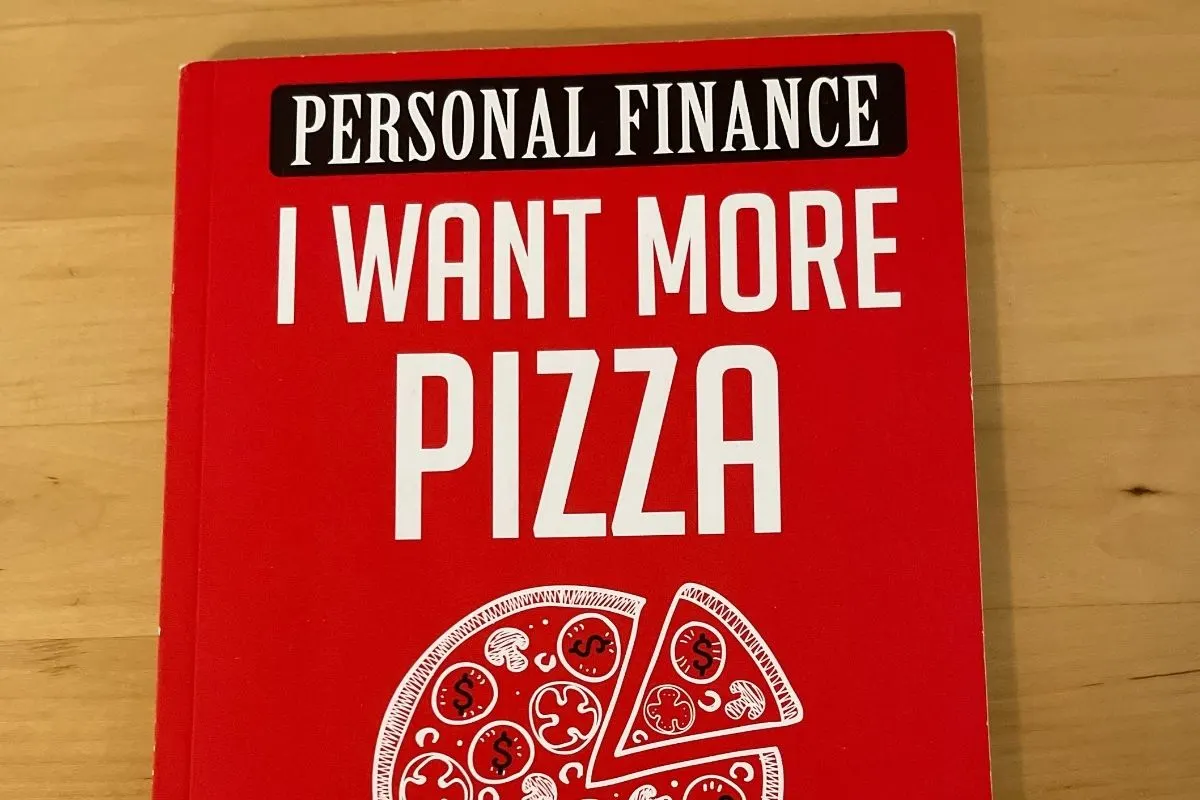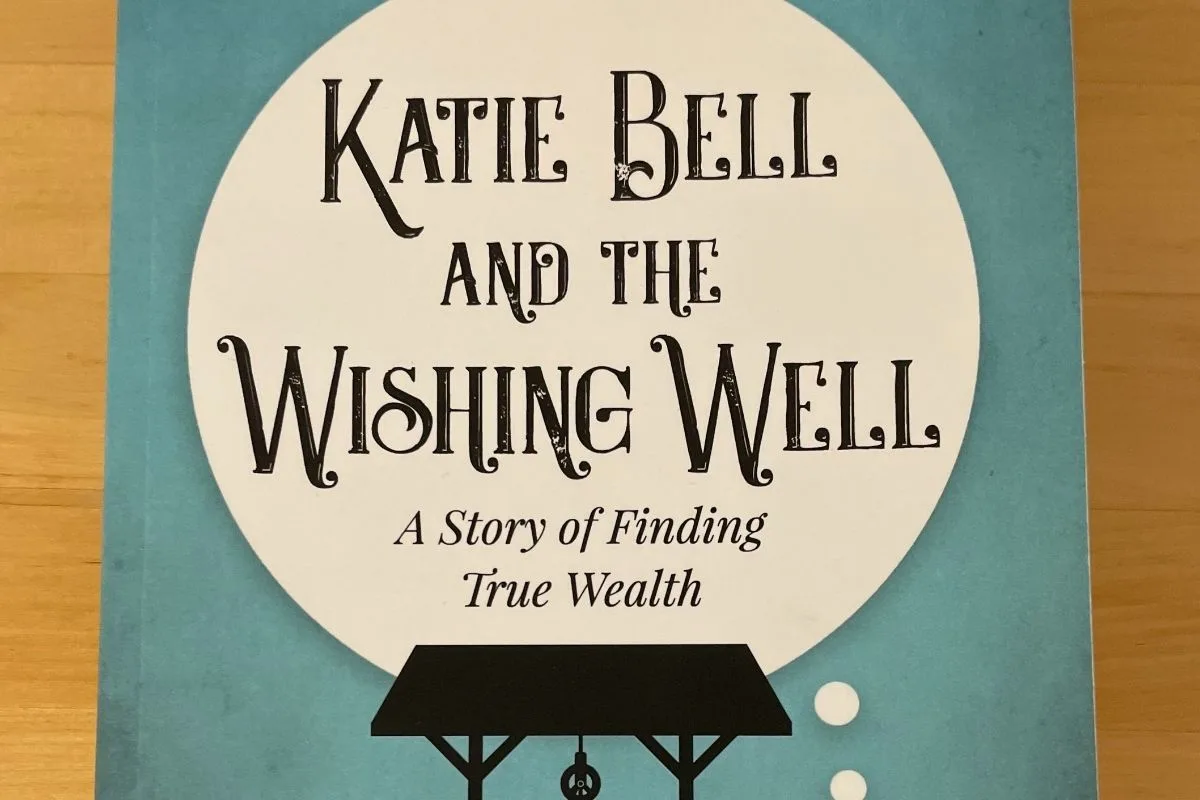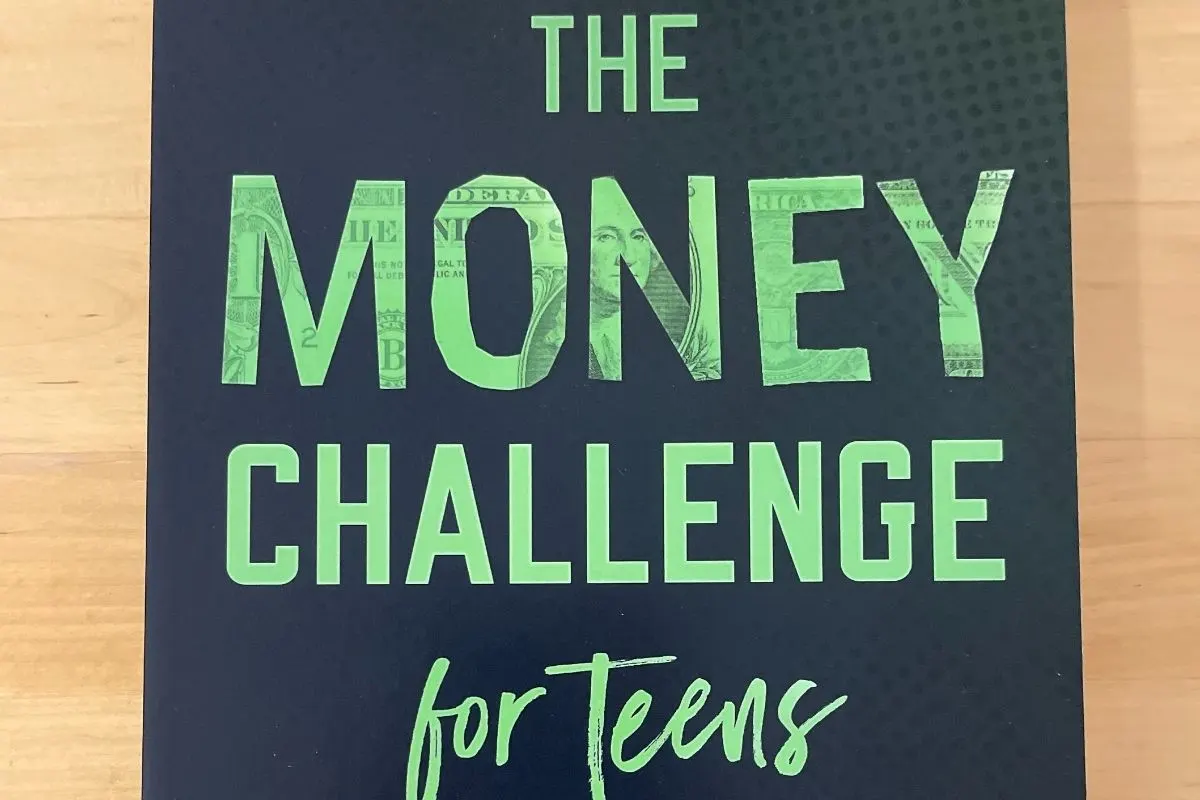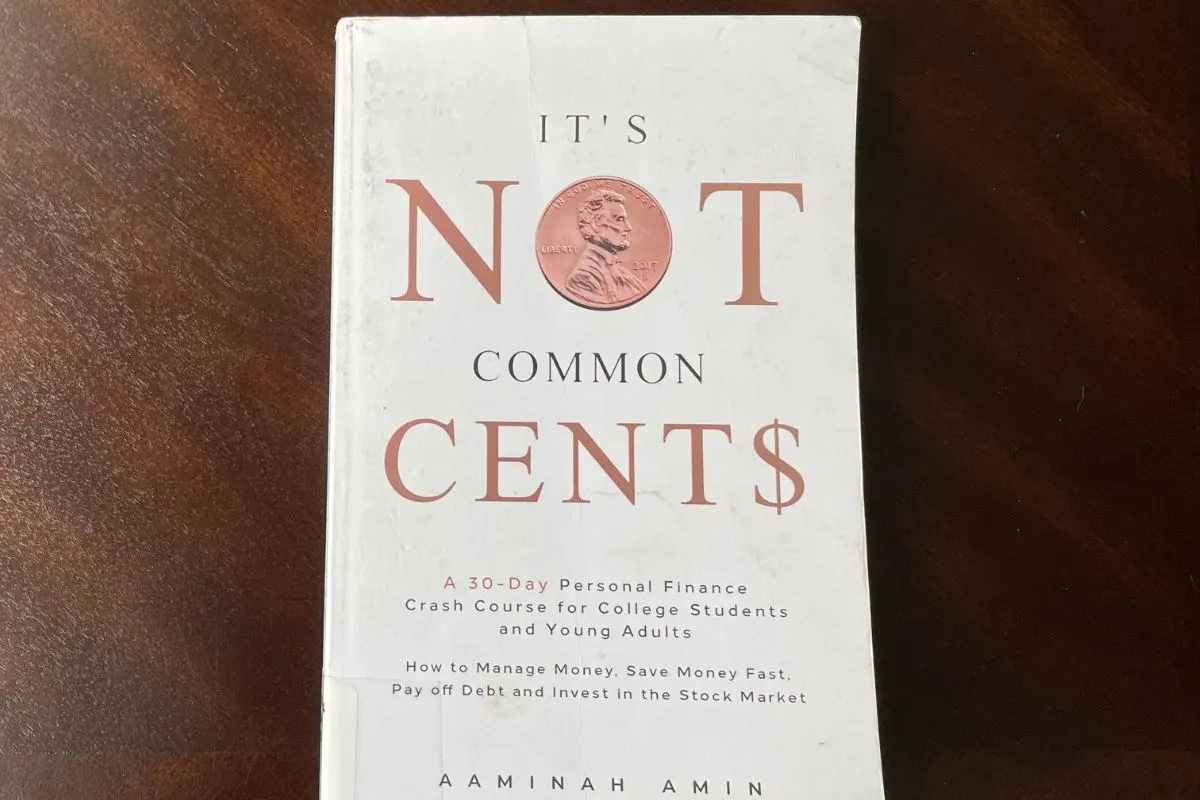Want to beef up your teen's money knowledge? Here are 10 great money books for teens and financial literacy books for high school students they'll WANT to read!
Ever feel like you don’t know where to start with teaching your teen about money?

I mean, it’s hard to know exactly what your teen already knows, and what they still need to learn (especially since they pick up so much from others, right?).
They’re obviously well beyond the basics like how to count coins or make a store transaction.
But do they know about compound interest, investing money, protecting money, or even what a credit card is?
Instead of fretting over where your teen is at right now, pick up one of these great money books for teens and let them read it over.
Pay attention to:
- The questions they ask you
- The research they do after reading a section (are they looking up any terms in a dictionary, or on Wikipedia?)
- Which parts they’re very interested in
These will give you clues as to what your teen knows, and the gaps in money knowledge you want to work on in the next few years.
Hint: not sure what money life skills your teen needs to learn? Check out my Ultimate Money Life Skills Checklist to help them tick off what they already know, and to help you understand what they still need to learn.
Let’s look at some of the best personal finance books for high school students.
Money Books for Teens and Young Adults
Each teen money book offers either a different perspective on the same money lessons, or varying money lessons your teen might need to learn.
Which is why I’ve personally read each and every one of these books – I want to make sure I can give you enough information to make a good choice (plus, I want to weed out the not-so-great money books for teens from ever making it onto my list).
1. I Want More Pizza
Suggested Age: 13-18
What I love about this book is how easy-to-read and easy-to-relate-to it is for teenagers (and, for adults!).

Steve was a regular teenager who managed to accumulate $5,000 by his junior year of college. He decided that he ought to invest that money and grow it…only to lose it all.
Instead of this tale scaring teens off of investing, it actually makes a great opening for why he’s the person to listen to. Like their big brother!
Topics covered include:
- Mental blocks to getting started managing your money
- Prioritizing your life and money
- Saving money
- Growing your savings
- Staying out of debt
One of my favorite quotes from prioritizing your money is, “You may not have known it, but each financial decision you make involves two sides—the item you’re buying, and, of equal importance, the item you’re giving up.”
What a great way to explain opportunity costs to a teenager!
2. Katie Bell and the Wishing Well
Age Range: 9 – 99 years
Don't let the “9 years” suggested age scare you off from this book – your teen has much to learn about wealth mentality from it.

Not only that, but they'll enjoy the read – I sure did!
This book is focused on teaching teens about wealth. And not only that – but about what a true wealth mentality is.
True wealth is not just about money. It includes caring/giving attention to your:
- Personal health
- Personal relationships
- Personal well-being
- Money
Not only does this book cover all of this (in a fun, story format), but it goes through how to have a wealth mentality (vs. an employee mentality).
Lots of great info to pass on!
It's also perfect if your tween or teen has ever told you that they want to be rich.
3. Not Your Parent’s Money Book
Age Range:10+ years
Author Jean Chatzky surveyed kids and teens from around the U.S., and answered some of their specific questions in this book.
Subjects include:
- Making Money
- Saving Money
- Spending Money
Some great topics she covers are how spending affects the overall economy, what a recession is, and typical salaries for different careers.
Very eye-opening book!
4. Rich Dad, Poor Dad for Teens
Age Range: 12+ years
Something I was surprised to learn – and your teen will be, too – is that true wealth is not measured by how much money you have.
That’s one of the takeaways from this book that I think is instrumental to your teen’s financial literacy.
Your teen will also gain a good understanding of the difference between assets and liabilities – another solid lesson I wish I’d learned much earlier in my life.
Parent PSA: I do want to mention that the author is a bit less enthused about schooling. Which is something to think about before your teen reads this book! However, learning is emphasized as a way to get wealthy.
5. The Money Challenge for Teens
Age Range: 13-18 years
Built around a fictional (and relatable) teen story, author Art Rainer delivers 30 different money challenges for teens to do.

What I love about this book – and what makes it different from other teen money books – is that its foundation is built on biblical money principles.
Rainer delivers tons of money lessons for teens all with the intent to prep them to:
- Give generously
- Save wisely
- Live appropriately
I think teaching teens a giving spirit from an early age is critical, and so his money challenges around this idea are right on.
I also think that since teens and kids are bombarded with materialism (it's dripping from their social feeds, the TV, etc.), the “Live appropriately” lessons and money challenges are absolutely essential.
6. The Motley Fool Investment Guide for Teens
Age Range: 12+ years
What makes this book stand apart from other financial literacy books for high school students is its emphasis on teaching your child how to spot a good company to invest in.
I also love how the book gets teens excited from the start by showing them how money is deeply connected to their ability to be independent. As well as how cool being independent is (in case your teen needs a lesson on that!).
7. The Teenage Investor
Age Range: 12+ years
The coolest thing about this book? It’s written by a 13-year old, who has been investing his money since he was 8 years old.
I think that gives this a unique perspective, and that your teenager can better relate to the advice pouring out from him.
Also, sometimes it’s easier to learn something complicated – like investing – from someone who was just a beginner themselves a few years ago. They can remember their own hang-ups, questions, and mental blocks that you might be experiencing now.
He goes over important concepts, like:
- Dollar-cost averaging
- Importance of watching fees on investments
8. Steve Jobs: Thinking Differently
Age Range: 12+ years
I’ve included this book because many teens are interested in entrepreneurship, and reading about Steve Jobs (one of the founders of Apple) is a great way to get an insider perspective.
Being an entrepreneur and pioneer is not all rainbows and unicorns, and I feel like this book does a good job of highlighting the struggles along the way to growing a solid business.
Things like:
- working on dining room tables and in garages
- making decisions that you don’t see good results from for 10 years
- creating a company that eventually kicks you out
It’s also a good business book for teenagers, as it shows how companies get their start (rather than just seeing a company at its peak greatness, like we normally do).
Heads up: Jobs was a college dropout. He found it boring.
9. Teen Entrepreneur Toolbox
Age Range: 12-18 years
This is actually much more than a teen financial literacy book on business – it's a full-on kit. Anthony ONeal teamed up with Dave Ramsey to come up with the following:
- Access to the Free Entrepreneur Toolbox app
- Teen Portfolio Book
- DVD of Anthony’s Training Video
- Parent’s Guide Book
- Pack of Thank You Cards
- Deck of Conversation Starter Cards about Starting a Business
- Goal Tracker Poster
The Teen Portfolio Book is really cool – it walks your teenager through the entire process of finding a business idea, setting goals around it, saving up money to pull it off, naming a price, winning customers, and much more.
10. It's Not Common Cents
Age Range: 16+ years

Here's the thing: I think this book is well suited for a young adult more than a teen…but I'm including it in this list for teens as well because it would really give your teenager a headstart to read over some of what they'll need to learn about finances in their early 20s.
She has a very relatable tone (sometimes snarky, which. many teens like!) that I feel makes big, complex money stuff seem more accessible to anyone reading the book.
Teens will:
- Read over easy-to-understand explanations for some financial jargon
- Learn how to do a guilt-free spending analysis
- Create a spending plan
- Work through an action plan at the end of each chapter
Mark this list as a “favorites”, as I’ll be adding to it as I find and sift through new money books for teens and young adults. And remember that these financial literacy books can be a great stepping-off point for money conversations with your child, and to better understand what they still need to learn. The point is to keep moving forward with their money education – one book, one money conversation, one spending goof, etc., at a time.
Amanda L. Grossman
Latest posts by Amanda L. Grossman (see all)
- 50 Banking Activities for Kids (Student Financial Literacy) - February 14, 2024
- 14 Christmas Activities for High School Students (they’ll Actually Find Cool) - December 1, 2023
- 3 Fun Selfie Scavenger Hunts for Teens (Christmas, Fin Lit, etc.) - November 27, 2023
